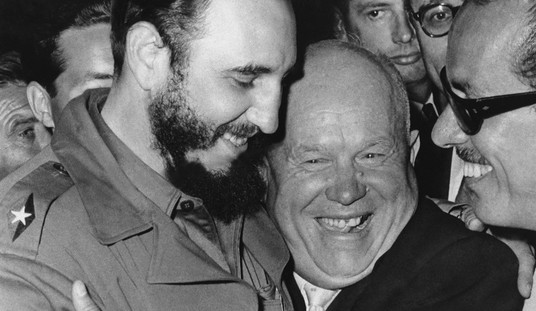Looks like conservatives had a rare moment of success today at the Supreme Court. After losing on DACA and the Pennsylvania redistricting cases over the last few days, the high court heard arguments on NIFLA v Becerra, in which plaintiffs have challenged a California law that requires crisis pregnancy centers to advertise abortion services as an option. According to Politico’s Josh Gerstein, attorneys for California ran into biting questions and responses to their defense of the law, and not just from the usual conservative jurists, either:
The Supreme Court appears inclined to strike down part of a California law aimed at so-called crisis pregnancy centers operated by anti-abortion activists, based on justices’ questions and comments at oral arguments Tuesday.
A surprisingly broad array of justices expressed serious concerns that the Reproductive FACT Act intrudes on First Amendment rights, by requiring such centers to include in their ads a state-provided notice in as many as 13 languages offering contact information about abortion services and other options.
Gerstein’s a reliable reporter on legal issues, but he’s also wise enough to know that the interrogatories can sometimes be misleading. The Supreme Court uses a Socratic method to parse through the arguments, forcing attorneys to sometimes address reductio ad absurdum hypotheticals to test the limits of their arguments, and in general poke holes all around. That can lead to impressions of hostility that may or may not be borne out in the final decision. Is that what happened today?
Er, apparently not, reports Reuters’ Andrew Chung. The questioning went beyond Socratic method into openly expressed hostility at times to the idea that California can force some people into speech and not others, thanks to a number of exemptions the state had already granted to the statute:
Conservative Justice Samuel Alito said that even if the law is neutral on its face, it contains so many exemptions that it appears to target only those with anti-abortion views.
“Is it possible to infer intentional discrimination?” Alito asked California deputy solicitor general Joshua Klein.
Liberal Justice Elena Kagan pressed Klein on the same concerns, wondering whether the law was applied only to “speakers whose speech we don’t much like.”
One particular concern over regulation of unlicensed and non-medical facilities got the attention of both Anthony Kennedy and Sonia Sotomayor:
Some justices said the law’s application to unlicensed facilities could be unconstitutional. Justice Anthony Kennedy, a conservative who sometimes joins his liberal colleagues in important cases, suggested that if the statute required unlicensed centers to add that disclosure to a billboard that simply stated “Choose Life” – a slogan for people who oppose abortion – it would violate the First Amendment.
Liberal Justice Sonia Sotomayor agreed that such an advertising requirement would be wrong.
NPR’s Nina Totenberg also sees the writing on the wall for California:
While some more liberal justices appeared receptive to the state’s case initially at the court Tuesday, the arguments appeared to unwind during several instances. Problems repeatedly arose for those defending the statute.
Justice Anthony Kennedy, the potential swing justice in this case, said the law in certain circumstances would seem to impose an undue burden. He cited a hypothetical example of a billboard in Los Angeles with the words “Choose Life.” He asked the lawyer for the state if it was paid for by an unlicensed facility if it would have to say so in large font and in multiple languages.
The lawyer for the state said that it would. For Kennedy, that seemed to be too much.
Don’t take anything for granted. The justices will chew on this for the next several weeks, and it’s likely to be contentious enough to take until the end of the term in late June for the decision to get published. At least for now, we can take heart in the fact that the Supreme Court took the First Amendment and equal protection arguments seriously, and hope that the outcome does better than a 5-4 split in either direction.









Join the conversation as a VIP Member